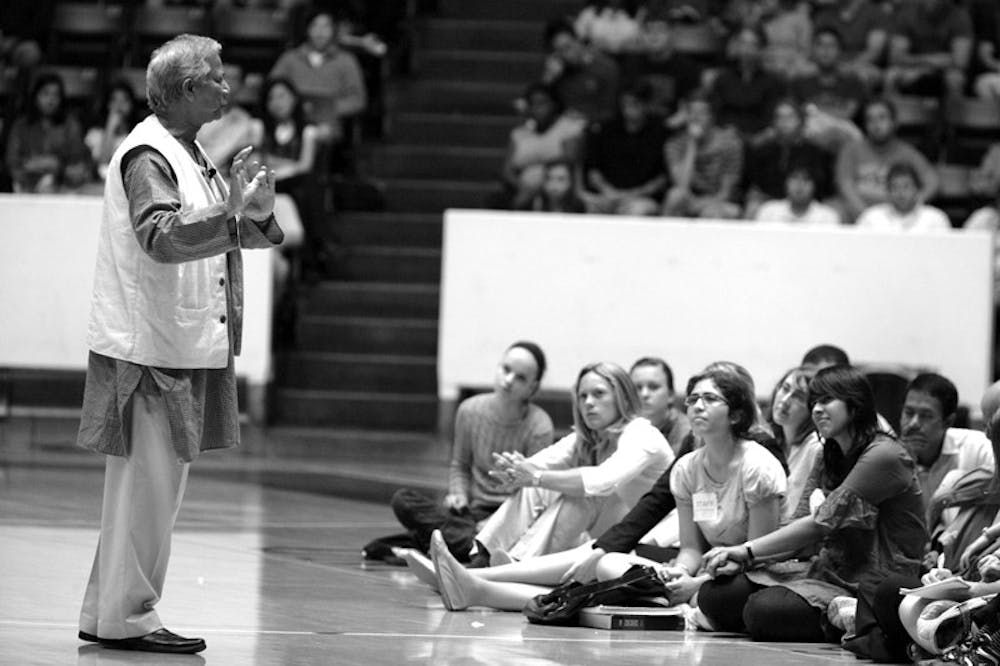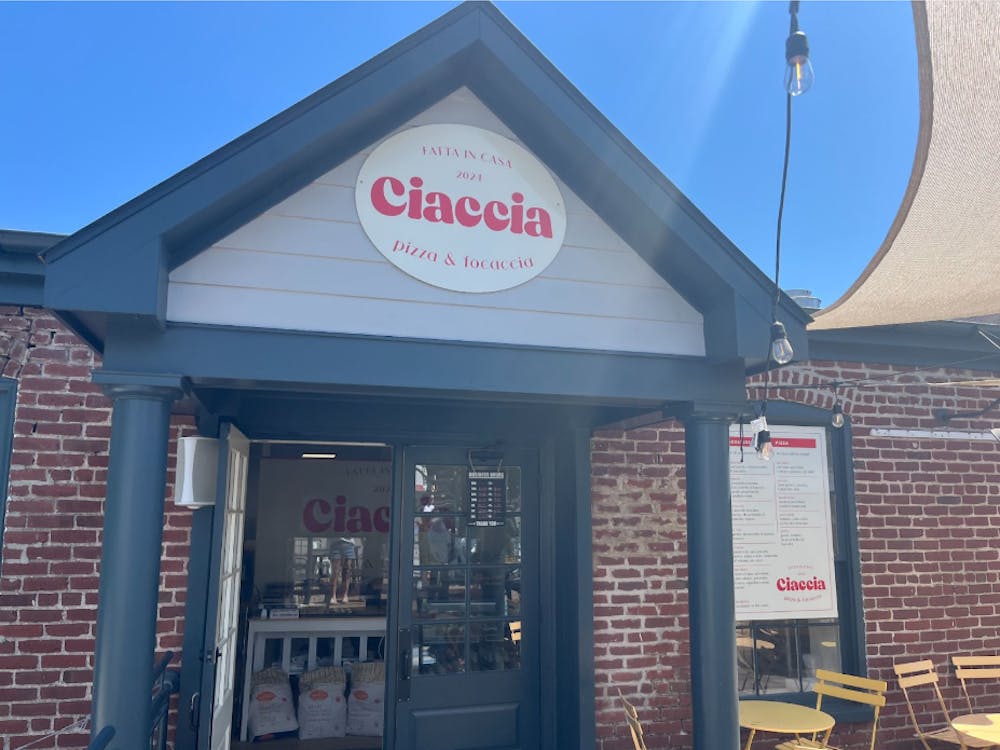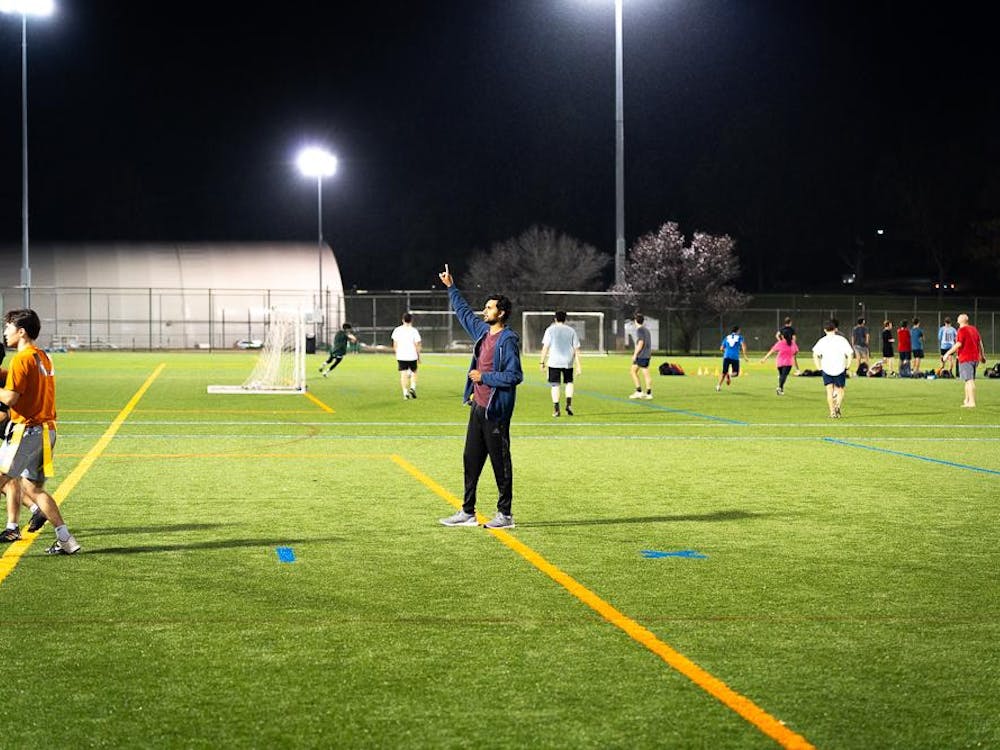It is not every day that a Nobel Prize winner comes to Charlottesville. Last week began with one of these fortunate days, as World Poverty Action Week commenced with a talk given by one of the most influential people of the century: founder of the Grameen Bank and Nobel Laureate, Muhammad Yunus.
Yunus spoke at University Hall Sept. 20 to a large crowd of University students and faculty. The talk kicked off a week filled with events to bring awareness to poverty action activities, sponsored by at least six different groups across Grounds, including Student Entrepreneurs for Economic Development and the University Center for International Studies.
Yunus, a Bangladeshi economist, is well-known as the "Father of Microfinance." In 1983, he founded the Grameen Bank, a community development organization geared toward providing small loans - without the need for any collateral - known as microcredit. More than three decades since this program began, microcredit is now a global movement. Today, the Grameen Bank is the largest bank in the world in terms of the number of borrowers, extending across 84,573 villages and reaching out to almost 8 million individuals. In addition, its loan recovery rate is greater than 95 percent.
In 2006, Yunus, along with the Grameen Bank, won the Nobel Peace Prize for his work in economic and social development, as the Grameen Bank has benefited millions around the world.
"[Yunus] has brought back hope where there was once despair," said Gowher Rizvi, vice provost for international programs at the University.
Famine in his home country during the mid-1970s inspired Yunus to look into the theories that he had been teaching as an economics professor. Yunus said the economic theories that he preached about then caused him to feel "tortured," because they seemed "empty" to him.
The original idea for microcredit grew out of Yunus' own work. He initially lent a small sum of $27 to a total of 42 families. In turn, the people started to view him as their angel, quickly returning the money as well. He said that he felt if he could just lend them another $27, he might be seen as their "super angel." These positive results culminated in the advent of the microcredit scheme, for which Yunus is most famous today.
Yunus' efforts have worked not only in Bangladesh but also in the United States. Grameen America, a U.S.-based microfinance organization, has helped more than 400 borrowers in the country. Its loan repayment rate is an astonishing 99 percent.
But microfinance still faces challenges. Currently, Yunus said, the main problem is that money cannot be lent legally without the use of collateral. In fact, microfinance is essentially an illegal activity that governments often ignore because it has been so helpful.
The benefits of microfinance also have extended to the empowerment of women and have even led to a decline in the birth rate in Bangladesh, Yunus said.
In regards to the current economic climate, there are several key aspects of our entire financial system that need to be improved, Yunus said, noting that the current crisis presents a unique opportunity to change the system for the better. The crisis highlights how important it is to have banks that cater not only to the rich but also to the poor, he said. In addition, money needs to be lent not only to men but also to women.
Fourth-year College student Katharine Hastings, who attended the event, said she was motivated by Yunus' talk.
"I found his idea of social business inspiring because it showed that anybody can solve a social problem with ingenuity," she said.
SEED Resource Head and third-year College student Hebah Fisher, who worked on World Poverty Action Week at the University, also said she was inspired by Yunus' call for action.
"What struck me most was the encouragement he gave to us as students to go out and make projects," she said. "As a Global Development Studies major interested in development work, I am even more eager to try my ideas after hearing Yunus speak."
Fisher noted that overall, World Poverty Action Week was a great success.
"We had a greater turnout for each event than we'd expected, and everyone seemed to ... come away from the events having learned a little something more," she said.







